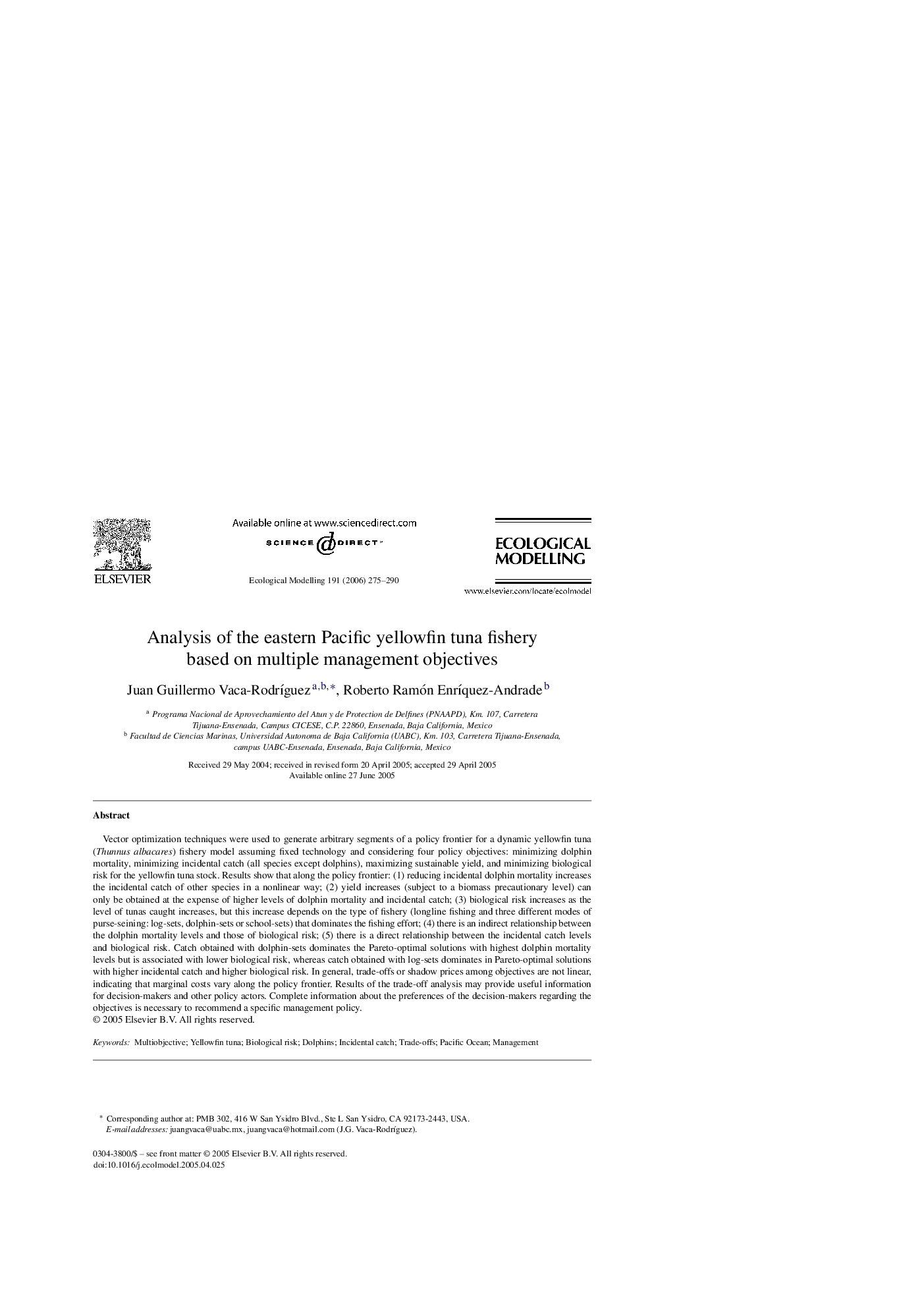| Article ID | Journal | Published Year | Pages | File Type |
|---|---|---|---|---|
| 4378962 | Ecological Modelling | 2006 | 16 Pages |
Vector optimization techniques were used to generate arbitrary segments of a policy frontier for a dynamic yellowfin tuna (Thunnus albacares) fishery model assuming fixed technology and considering four policy objectives: minimizing dolphin mortality, minimizing incidental catch (all species except dolphins), maximizing sustainable yield, and minimizing biological risk for the yellowfin tuna stock. Results show that along the policy frontier: (1) reducing incidental dolphin mortality increases the incidental catch of other species in a nonlinear way; (2) yield increases (subject to a biomass precautionary level) can only be obtained at the expense of higher levels of dolphin mortality and incidental catch; (3) biological risk increases as the level of tunas caught increases, but this increase depends on the type of fishery (longline fishing and three different modes of purse-seining: log-sets, dolphin-sets or school-sets) that dominates the fishing effort; (4) there is an indirect relationship between the dolphin mortality levels and those of biological risk; (5) there is a direct relationship between the incidental catch levels and biological risk. Catch obtained with dolphin-sets dominates the Pareto-optimal solutions with highest dolphin mortality levels but is associated with lower biological risk, whereas catch obtained with log-sets dominates in Pareto-optimal solutions with higher incidental catch and higher biological risk. In general, trade-offs or shadow prices among objectives are not linear, indicating that marginal costs vary along the policy frontier. Results of the trade-off analysis may provide useful information for decision-makers and other policy actors. Complete information about the preferences of the decision-makers regarding the objectives is necessary to recommend a specific management policy.
